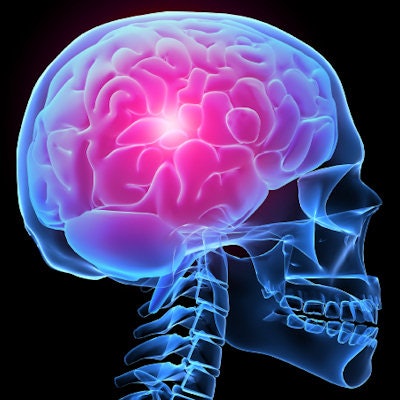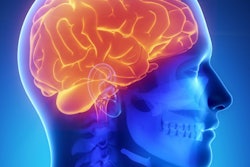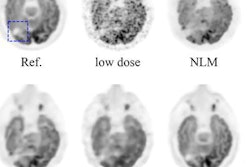
An artificial intelligence (AI) algorithm can recognize the signatures of dementia on amyloid PET scans two years before the onset of symptoms, according to research published online recently in Neurobiology of Aging.
Using data from the Alzheimer's Disease Neuroimaging Initiative (ADNI), a team from McGill University developed a machine-learning algorithm that produced 84% accuracy in predicting which patients would develop dementia within two years. The group believes the algorithm could change the way physicians manage patients and also accelerate research on the treatment of Alzheimer's disease.
"By using this tool, clinical trials could focus only on individuals with a higher likelihood of progressing to dementia within the time frame of the study," said co-lead author Dr. Serge Gauthier in a statement. "This will greatly reduce the cost and the time necessary to conduct these studies."
Gauthier, co-lead author Dr. Pedro Rosa-Neto, and colleagues trained the machine-learning algorithm with data from 273 patients with mild cognitive impairment (MCI) from the ADNI database. In testing on an independent dataset, the algorithm produced an accuracy of 84% and an area under the receiver operating characteristic (ROC) curve of 0.906 -- outperforming both existing algorithms using the same biomarker measures, as well as those in previous studies using multiple biomarker modalities (Neurobiol Aging, July 10, 2017).
"The novel algorithm overcomes the inherent imbalance of proportions between stable and [progressive MCI] seen in a population of MCI individuals, making it ideally suited for a clinical environment as an early diagnostic tool," the authors wrote.
The team is now working to find other dementia biomarkers that could be incorporated into the algorithm to further improve its prediction capabilities. While the group has made the software available online to scientists and students, physicians won't be able to use the tool in clinical practice before certification by health authorities, according to the authors. As a result, they are currently conducting further testing to validate the algorithm in different patient cohorts, particularly those with concurrent conditions such as small strokes.



















